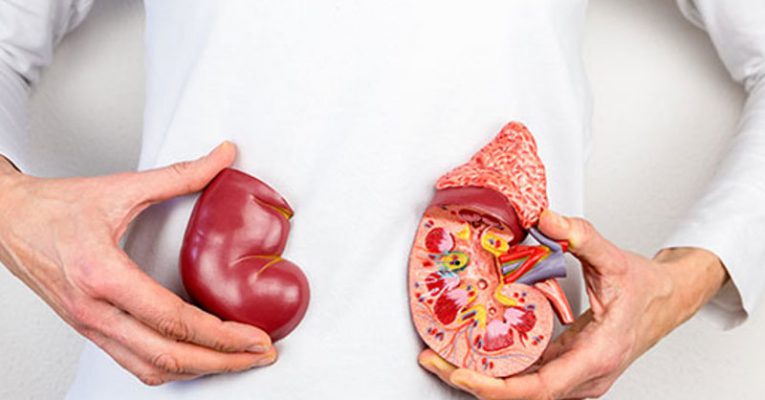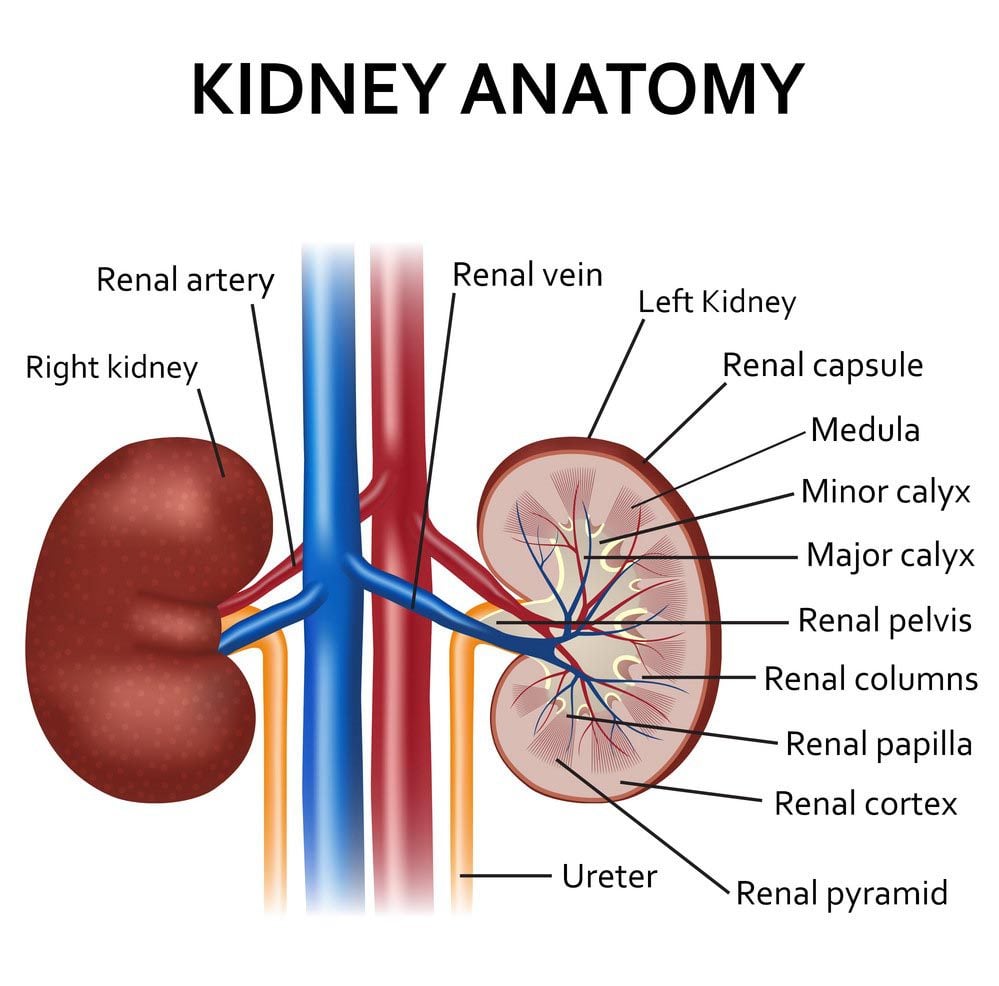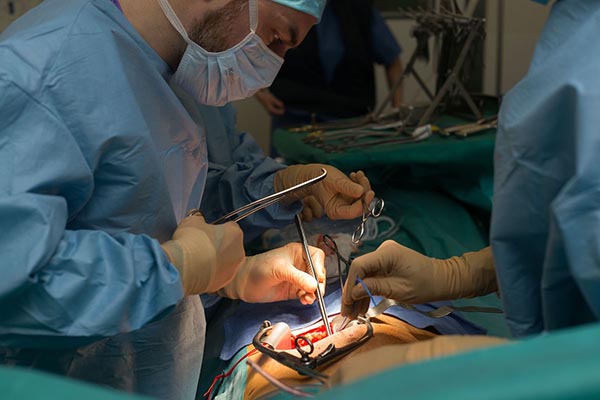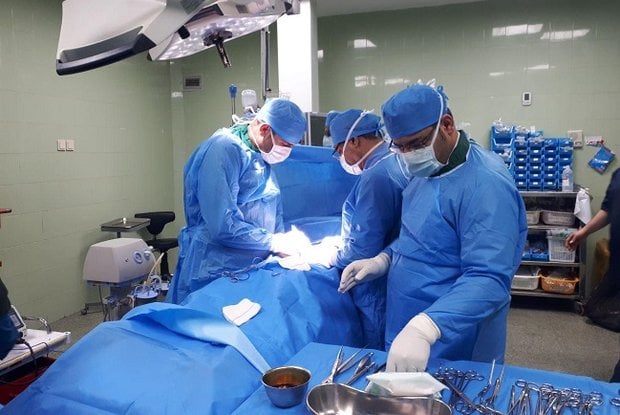
The kidneys are bean-shaped organs in the human body responsible for filtering out and removing waste materials and fluid by urinating.
When the kidneys fail, or their function is impaired, there are two main treatment options for the patient: dialysis and kidney transplantation.
Many people prefer to have a kidney transplant instead of long-term dialysis, because despite the initial difficulty, it will bring many more benefits.
If the kidney transplant is performed before any dialysis, it would be called a "preemptive kidney transplant". This transplantation would eliminate the need for dialysis. If the transplant is performed shortly after kidney failure but the dialysis has been started, the transplant would be called "early transplant".
Quick Information | |
|---|---|
cost | from 13000$ to 14000$ |
Hospital Stay | 7 to 10 days |
Minimum Stay in Iran | 3 to 4 weeks |
The following are some of the factors that can make a kidney transplant inappropriate for the patients:
If you have the conditions to perform a kidney transplant, you can learn more about the advantages and disadvantages of this operation in the following article.
One of the most significant benefits of kidney transplantation is the increase in healthy life expectancy in people struggling with kidney failure.
For a person in his/her thirties who is on dialysis, a limited life expectancy (for example, fifteen years) can be considered.
In the same situation, if a kidney transplant has been performed with an organ donated from a deceased person, the life expectancy of the recipient will be increased to 30 years, and if the organ is received from a living person, it will be increased to 40 years. These differences will be noteworthy for a person at the crossroad of choosing whether or not to have a kidney transplant.
Kidney transplantation not only can increase the life expectancy of kidney patients but also bring them a much easier life with higher quality. If the operation remains successful, the kidney patient will no longer need dialysis. Dialysis treatment requires frequent referrals of patients to the kidney dialysis units and undergoing the dialysis itself. This procedure will be up to three times a week, and it would take up to four hours each time.
Apart from the difficulties of dialysis for the kidney patient, the costs of this treatment are relatively high and will be burdensome to the patient or his family.

One of the most considerable restrictions that kidney transplantation can overcome is the patient's diet. Kidney patients who have to undergo dialysis should tolerate too many food restrictions. Although after kidney transplantation, people still have to maintain a healthy diet and stay away from alcohol and smoking as much as possible, in many cases, they will find more freedom of action in their lifestyle and diet.
Other possible benefits of kidney transplantation include improving anemia, regulating blood pressure, raising energy levels and overall strength of the body, and so on.
Many people struggling with kidney disease also experience many problems in their sexual life, and their fertility is greatly reduced. After kidney transplantation, patients can experience the enjoyment of having healthy children and a significant improvement in their sexual performance.
However, women need to avoid getting pregnant for the first two years after the operation. We will read more in this regard in the following parts. Also, after kidney transplantation, the need to prevent Venereal diseases will be doubled.
One of the most important disadvantages of this operation, which also carries risks, is the patient's body rejection of the donated organ. The likelihood of this complication increases if the donated organ does not have the necessary coordination with the patient in terms of the body tissue and blood type.
Symptoms of kidney transplant rejection include incidents such as swelling, bleeding, difficulty and pain in urination, and so on. In such cases, the patient will have to undergo subsequent kidney transplantation or dialysis.
To prevent rejection of a new organ, many immunosuppressive drugs are prescribed. We will talk about their side effects later on.

Normally, after a kidney transplant, the body's immune system may attack the newly transplanted kidney because it can be recognized as an exotic tissue. One of the most important medications that doctors prescribe after kidney transplantation (to prevent organ rejection) is immunosuppressive drugs. Because these drugs work to prevent the body from attacking a new organ, they also affect how the body fights other diseases, bacteria, and other external agents.
One of the most important side effects of this issue is the increased risk of cancer in people. These drugs can also affect pregnancy conditions after a kidney transplant.
However, in order to decrease the risk of cancer, it is necessary for the person to be examined regularly while taking immunosuppressive drugs. These examinations include detailed annual exams, Pap smear test, pelvic examination and mammography (for women), prostate and testicular examination (for men), skin examinations, etc.
These drugs can also cause other side effects such as pimples and acne, decreased bone density (osteoporosis) and bone damage (osteonecrosis), fine hair, weight gain, etc.
Women of childbearing age who undergo kidney transplants are required to prevent pregnancy for up to two years.
Pregnancy before these recommended 2 years will cause serious problems for both mother and fetus.

In some Western countries, including the United States, transplantation faces some barriers. In these countries, a donated organ can usually only be transferred from a deceased person to a kidney patient. Therefore, it is clear that the patient must wait in line for a long time (perhaps even close to 5 years) to receive a kidney compatible with his body.
However, it is noteworthy that one of the advantages of kidney transplantation in Iran (compared to many other countries) is that in Iran, it is possible to receive a healthy kidney from a stranger. This is by mutual agreement and in the form of absolutely legal conditions. Therefore, it can greatly affect the speed and ease of kidney transplantation and solve the problem of staying in a long waiting queue.
Nevertheless, it is critical to know that according to Iranian Medical law, non-Iranians in need of a kidney transplant must bring with themselves a suitable donor of their nationality to Iran as a kidney donor.
Many patients will not face any problems after a kidney transplant. Typically, patients are hospitalized for three to four days, and after that, they can be discharged. But for some others, the situation can be different due to several issues, such as prior poor health conditions or underlying diseases.
Complications after kidney transplantation include reaction to anesthesia during surgery, pain, bleeding and infections after surgery, urinary tract obstruction, Urinary incontinence, blood clotting, etc. In very few cases (with a probability of 0.03% per operation), the risk of fatality can also be mentioned.
However, in most cases, if patients are examined regularly and take their medications properly, they will return to normal life very soon, and they will not experience any problems.
Therefore, it is essential to contact your doctor after a kidney transplant and consult him or her if you notice any abnormal symptoms.
Also, do not forget that at any stage of this operation, the medical consultants of TebMedTourism are ready to answer your questions, with open arms.



TebMedTourism Company is an International healthcare facilitator based in Tehran, Iran.
We start our professional activity in medical tourism industry regarding the profound capability of Iran in both healthcare & touristic fields.
We are ready with open arms to provide desirable services to our dear patients & guests from all over the world to enjoy world-class treatment quality and highly skilled doctors in Iran.
TebMedTourism company is cooperating with more than 40 internationally certified hospitals, 140 selected local hospitals, 300 specialized medical centers, 430 doctors, 112 hotels, domestic and international airlines in Tehran, Shiraz, Mashhad, Tabriz, Qom and other cities in Iran.
TebMedTourism team facilitates comprehensive medical & cosmetic packages in all medical & wellness & touristic fields aimed to achieve your desires.
TebMedTourism experienced team will make this procedure seamless and enjoyable from A to Z, so you will just focus on your recovery.
Communication ways:
call us: +98 912 098 5010
Visit us: 1st. Floor / No. 270 /Between Bagh & Azadi Alleyways / North Sohrevardi st. / Tehran / Iran
Mail us: [email protected]

Comments & Questions